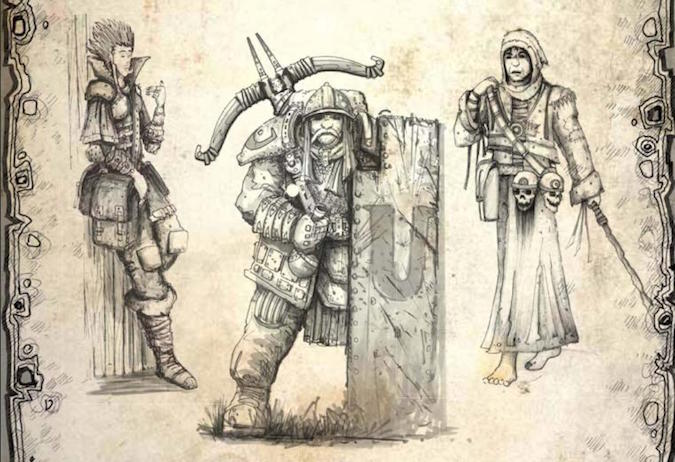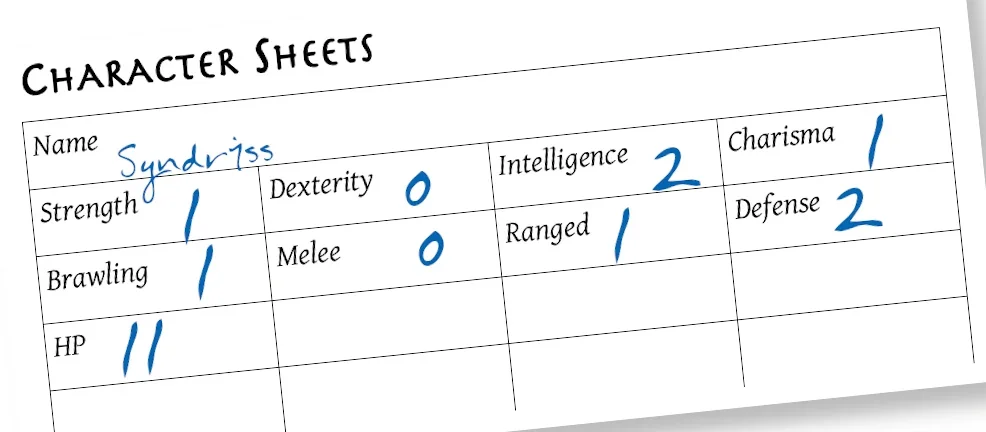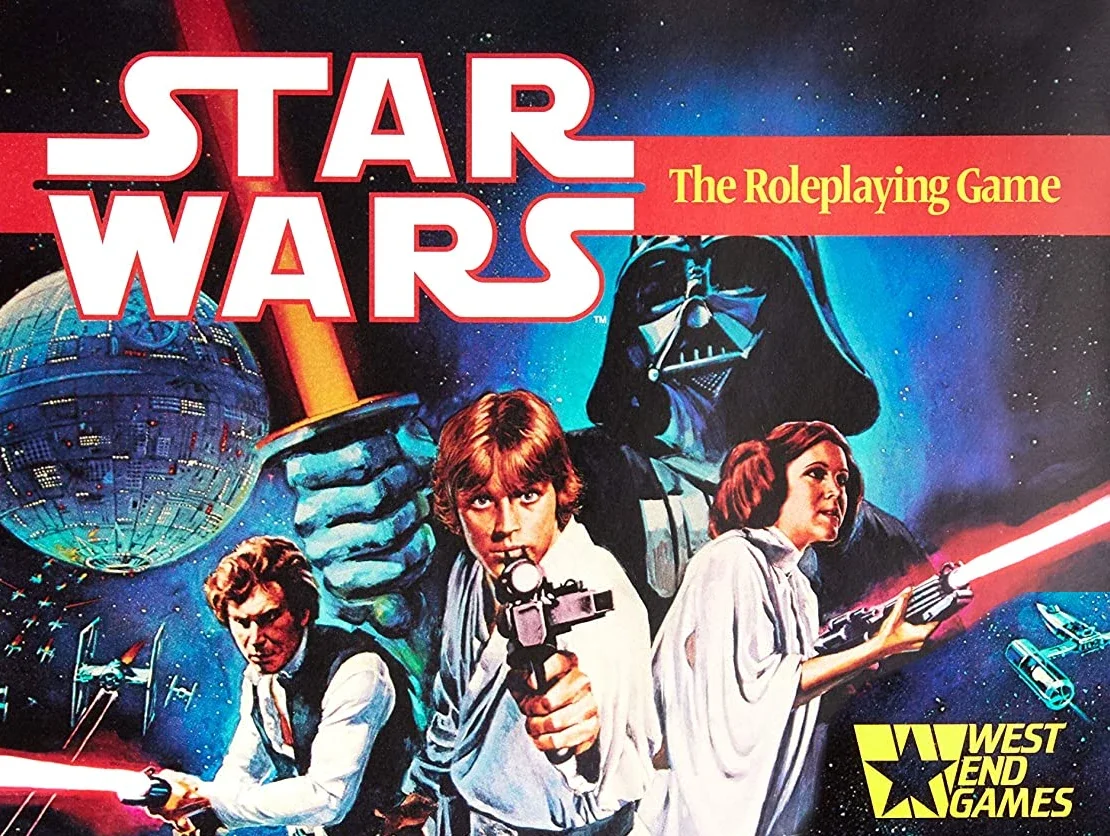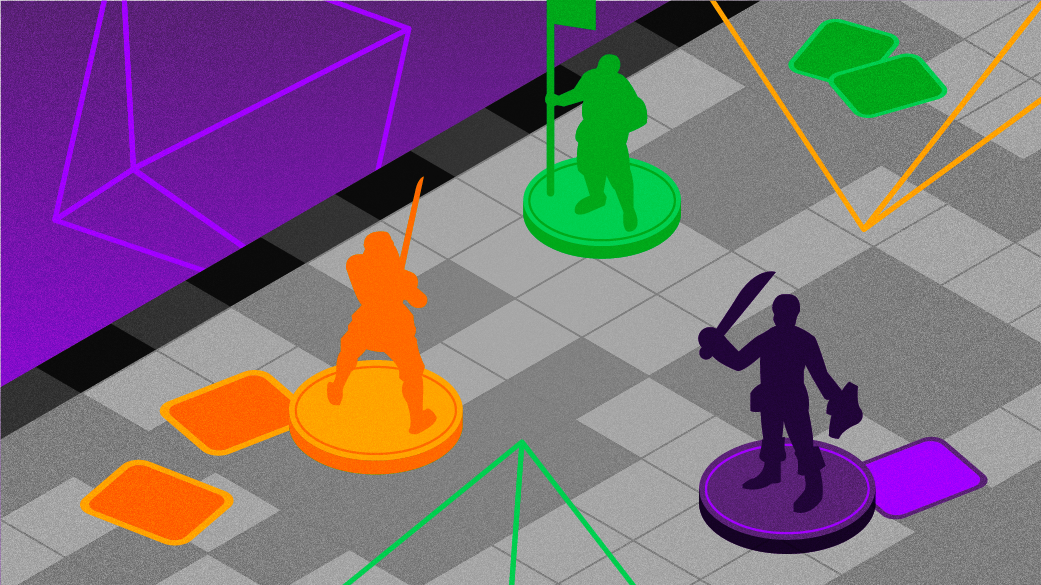Since 2007, game publishers and game stores have teamed up to provide free samples of RPG gameplay to the uninitiated. Last year, Free RPG Day was an official, multi-publisher, worldwide event that welcomed people who were either entirely new to tabletop roleplaying games, or who were just new to specific games, to get together with new friends and play new games. Best of all, it didn't cost anything to play, so whether you were only exploring to find out if RPGs were right for you, or you were a longtime player looking for a new game, there was no risk.
In 2020, Free RPG Day, like so many events, has been disrupted by COVID-19. While the event is scheduled to continue despite the pandemic, there are many places around the world where meeting in person won't be prudent, safe, or possible.
This is when open source and free culture can come to the rescue, though. Through the power of the Internet and the efforts of independent creators all around the globe, you can host your very own Free RPG Day on any day you please.
This is your guide to five of the best free (as in redistributable AND as in $0) RPGs.
Warrior, Rogue & Mage

Created by Michael Wolf and "proudly" released under a Creative Commons BY-NC-SA 3.0 license, Warrior, Rogue & Mage (WRM) is a lightweight fantasy-based RPG. At just 36 pages, including option rules, example villains and monsters, and some world building text, WRM is a relatively easy game to learn. Obviously not as lean as Steel & Flame's six-page ruleset, this is something you'll want to send your players the day before the game so they can get up to speed. It's not a bad idea to spend some time with it yourself so you can fill in the gaps.
The game uses six-sided dice, so you don't need special 20-sided or eight-sided RPG dice. Character building is likewise simple, and that's built into the very title—each player can be any mix of a warrior, a rogue, and a mage. If you invest 0 points as a mage, then you cannot cast spells, and if you invest more in warrior than rogue, you'll excel at brawling and strength rather than stealth.
What this means is that every player has equal potential to play exactly the right mix of whatever cool fantasy tropes they love the most. Building a character is fast and easy, so your game can start within the first hour. To simplify it further, of course, you can generate characters in advance.
WRM has equipment, magical spells, and monsters, so it's relatively easy to take any free dungeon map from the Internet and drop players into it. Insert some monsters and treasure at key points, and you've got an exciting dungeon crawl in no time.
Download Warrior, Rogue & Mage (WRM), and should you continue playing after Free RPG Day, take your pick from several splat books containing extra options.
Steel & Flame
The key to a successful Free RPG Day is the ability to sit down, build a character, and play a game for a few hours. An hour spent learning rules is an hour of not playing the actual free RPG for which the day is named. This is precisely where Brent Newhall's Steel & Flame excels—it's a mere six pages of rules, two of which mostly contain non-essential or optional content. You can build a character in five minutes, meaning you'll be playing within 15. Even better, if your character dies during a game, you can create a new one with minimal downtime.

The dice system controlling the randomness of the game is designed around the famous (and Creative Commons licensed) FATE system. In FATE, you use a six-sided die (a "d6", in RPG notation) or a special FATE die (if you happen to have them lying around), in which a roll of 1 or 6 represents a +1, 2 or 5 represent -1, and 3 or 4 represent +0. Add this bonus to the number of the relevant attribute on your character sheet, and the game master determines whether your action (an attack, or a spell, or some feat of physical or mental prowess) is successful. That's it!
The cost of such a lightweight system is that the game master must be familiar with how an RPG is run. Villains and monsters are described in literally two sentences (one each), providing typical health points and damage points. It's up to the game master to invent the story, in-game items, details about monsters and villains, and any circumstantial rules that happen to come up during play.
On the other hand, anyone who's ever seen a game master run a game of D&D can probably run a game of Steel & Flame, because the rules ultimately are down to your instinct. If you're not sure how to resolve an in-game conflict (aside from formalized combat, which does have clear rules defined), just have people roll dice and make up a rule to explain the result.
Steel & Flame is a fast and carefree system. It's released under a Creative Commons Attribution-ShareAlike license (CC BY-SA 3.0) and can be downloaded from drivethrurpg.com. If you enjoy playing it, visit the download page again and throw money at the very prolific game designer.
OpenD6
The OpenD6 system was developed by Eric Gibson, owner of West End Games (WEG), as the open source code for the D6 system. It served as the foundation for several classic games, including the official Star Wars, Ghostbusters, and Indiana Jones D6 games. Fans of these games found that the OpenD6 system was surprisingly customizable, and variants quickly sprang up to allow players to game in imaginary fantasy lands, sci-fi settings, the modern world, and everything in between.

OpenD6 is released under the Open Game License (OGL), with some OpenD6 product identity reserved for trademark purposes. Several OpenD6 variants have been released as free downloads—D6 Adventure, D6 Fantasy, D6 Space, and Septimus, along with several support books filled with creatures, ships, androids, and other options.
While each book is usually over 100 pages, the core system remains the same throughout. You build a character by assigning an allotment of D6 to various skills you want your character to have. When it comes to using a skill in the game, you roll one or more dice, depending on what you've assigned to that skill. You also roll a "wild die" for an added boost (or sometimes a more spectacular failure). Obviously, the more dice you have in a skill, the better your chances of success. But beyond that, there's just something exciting and satisfying about dumping a fistful of dice into a dice tower.
The core rules, some of which I've just described here, can be summarized on one page (front and back) and is available as a handy distributable brochure. You can print the rules out, hand them to new players, and they'll know everything they need within 15 minutes. Spend another 15 minutes building characters, and you're playing within the hour.
One of the main advantages of OpenD6 is its flexibility. Whether your friends want to play a fantasy RPG, or a space opera, or an urban drama, OpenD6 can provide. It's one system to rule them all, and it does so very effectively.
Ironsworn
Another Creative Commons game, Ironsworn is based around a ten-sided die and a unique RPG system suitable for multiplayer as well as solo play. That means that if you're running a Free RPG Day for you and you alone, you can play Ironsworn!
Solo play uses an "oracle," which is the game's term for anything that makes a random choice for you. It's similar to playing D&D by relying on random tables, but Ironsworn allows there to be a little more structure because it codifies (broadly) every possible move.
You can play an Ironsworn game by moving from milestone to milestone, structuring an adventure almost programmatically. Don't let that fool you into thinking it is rigid, though; there's a lot of flexibility in Ironsworn because you can lean on its structure as much or as little as you feel necessary. And thanks to its unique Momentum system, players build up to exciting successes when they want it the most.
Ironsworn isn't a simple game. Its rulebook is over 200 pages, although only about 100 of those cover essential rules. The rest of the pages cover the game world, oracles, sample gameplay, and so on. Learning it is at least an afternoon, but once you learn the basics, it's pretty consistent and intuitive. It's a relatively low-magic game, too, so there aren't many exceptions to the established rules.
You can download Ironsworn from its website, along with several assistive materials, including a reference sheet for moves and oracles.
Swords & Wizardry
A star of the "Old School Revival" (OSR) scene, Swords & Wizardry is a throwback to the original D&D game that started it all. Released under the Open Game License, it seeks to reinvent and revive whilst also improving the feel of old RPG games. In practice, the result is a set of rules that fits into 32 pages, with another 20 or so for spells, and another 70 just for the game master. It also means that some mechanics (THAC0 in particular, although the book allows for ascending AC as an approved alternative) are resurrected seemingly only for the sake of nostalgia or, more likely, to account for force of habit.
It's a hefty game to learn, but there are a few things that might make it worth it. First of all, the system feels familiar to anyone who has played D&D—it's primarily based on a 20-sided die (D20), with lesser dice used for specific weapon and spell damage. Secondly, character creation is surprisingly quick compared to modern RPGs. It may not be as fast as something like Steel & Flame, of course, but it's not a whole afternoon of choosing feats and calculating armor class.
Finally, Swords & Wizardry is exactly what it sets out to be: a modern interpretation of an old, classic game for which many players hold fondness, and other players may want to experience but otherwise could not. The fact is, the oldest editions of classic D&D weren't written as standalone games, relying upon existing gamer culture and wargames of the time. Sure, you can play AD&D for an old-school experience, but Swords & Wizardry provides you with a truly classic feel, but with all the documentation you need for it to make sense.
Open Gaming
The truth is, there are many more great pen-and-paper roleplaying games with open licenses. Even the original game that started it all, Dungeons & Dragons, is itself licensed under the Open Game License, so you can distribute, remix, and play its System Reference Document without investing any money into the hobby.
The important thing about open gaming is that it's accessible to everyone, and that's what Free RPG Day emphasizes best. No matter your experience, your background, financial status, or physical ability, you can play in an imaginary world created from the imagination of you and your friends. Why not make today, and every day, free RPG day?










9 Comments